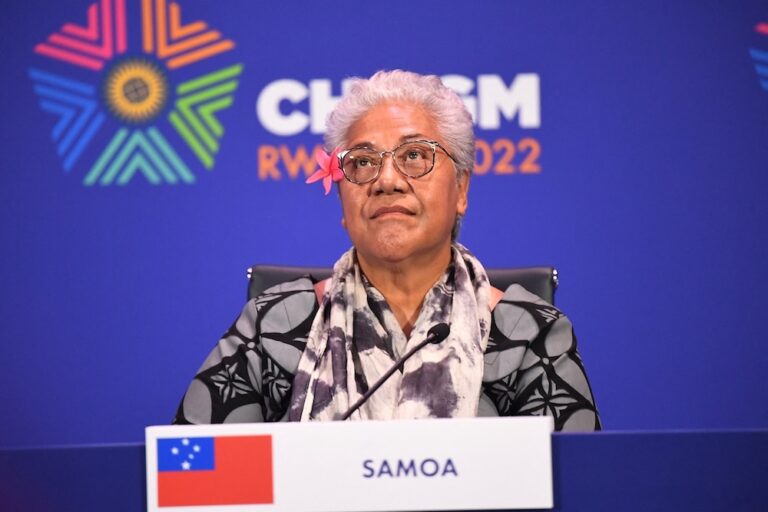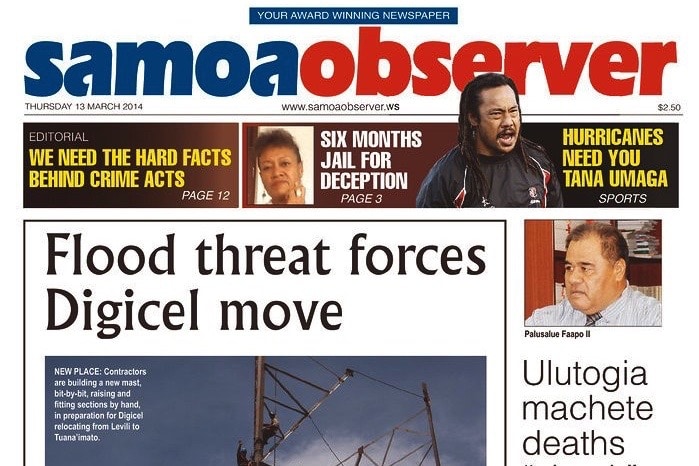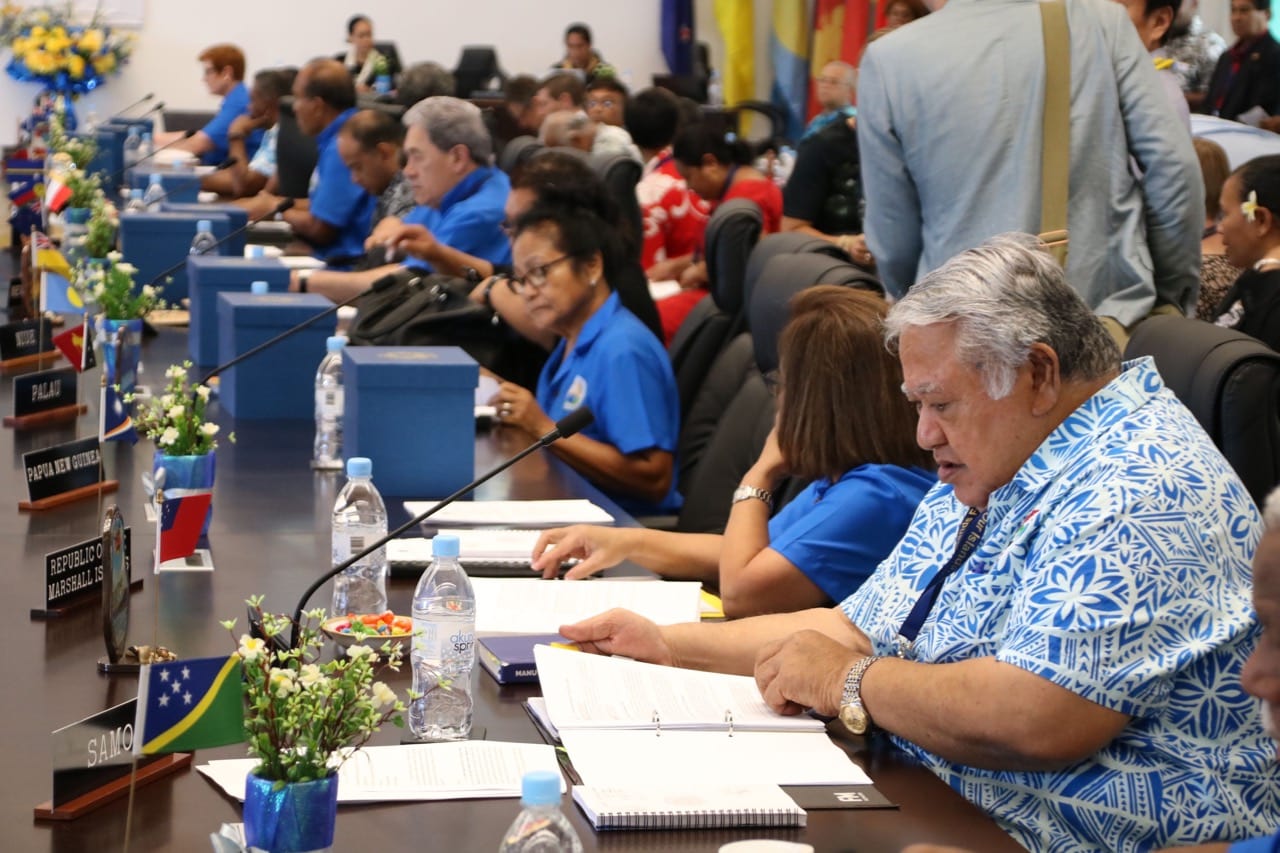(PINA/IFEX) – On 16 March 1999, “Samoa Observer” publisher Savea Sano Malifa and editor Aumuagaolo Ropeti Ale were fined 500 Western Samoa Tala (about US$230) each after being found guilty of contempt of court. Chief Justice Tiavaasue Falefatu Sapolu found in the Apia Supreme Court that it was a case of civil and not criminal […]
(PINA/IFEX) – On 16 March 1999, “Samoa Observer” publisher Savea Sano
Malifa
and editor Aumuagaolo Ropeti Ale were fined 500 Western Samoa Tala
(about
US$230) each after being found guilty of contempt of court. Chief
Justice
Tiavaasue Falefatu Sapolu found in the Apia Supreme Court that it was a
case
of civil and not criminal contempt. Samoa’s government-owned Polynesian
Airlines had earlier sought to have Malifa and Ale arrested for contempt
and
committed to Apia’s Tafaigata Prison.
**Updates IFEX alerts of 14 March, 10 March, 4 March, 26 February, 22
February, 17 February and 25 January 1999**
According to a report by Samoa’s independent Tala nei news agency, the
chief
justice ruled that a court injunction the pair were alleged to have
breached
was clear about what it required. He said that the breach was “not
casual or
accidental,” Tala nei reported. The defence submission that citizens
have
the right to express themselves freely in a democratic society was meant
to
suggest that the injunction should not have been issued in the first
place,
he said. As Tala nei reported, the chief justice stated that this was
tantamount to taking the law into one’s own hands.
The chief justice also ordered the “Samoa Observer” to publish an
apology.
He said he would give full reasons for his decision in writing to
lawyers
for both parties. Polynesian Airlines meanwhile applied for the “Samoa
Observer” to be ordered to pay its court costs. A ruling on this will be
given later.
Background Information
Polynesian Airlines claimed Malifa and Ale disobeyed a Supreme Court
injunction granted to the airline on 15 February and upheld on 24
February.
This ordered Malifa, Ale and the “Samoa Observer” not to publish “any
article or story relating to the salaries, remuneration, allowances and
benefits paid to employees and higher
ranking officers” of Polynesian Airlines without the airline’s
permission.
The airline claims that an opinion piece headlined “Nothing illegal or
have
something to hide?” and a letter to the editor headlined “Polynesian and
the
IOC”, both published in
the “Sunday Samoan” of 28 February, breached the court order. The
“Sunday
Samoan” is the “Samoa Observer” company’s Sunday edition.
On 24 February, a Supreme Court judge refused to lift his injunction
preventing the “Samoa Observer” from publishing leaked details of
allowances
and advances paid to senior staff of Polynesian Airlines. On 16
February,
the 3000-circulation newspaper was printed, carrying reports about the
allowances and advances plus earlier large financial losses by the
airline.
It was about to be distributed when the judge’s injunction was served.
As a
result, the “Samoa Observer” lost that day’s edition. Malifa said he
would
appeal against the judge’s rulings because of the “threat of
censorship.”
The “Samoa Observer”, which was founded by Malifa and his wife Jean, is
Samoa’s only daily newspaper and main independent news voice. The
government-run national radio and TV services are heavily controlled by
the
government. The opposition’s access to the government media is severely
restricted. The Malifas and the “Observer” have been awarded the PINA
Pacific Freedom of Information Award, the Commonwealth Press Union’s
Astor
Award and Index on Censorship’s media freedom award for their defence of
freedom of information and expression in Samoa.
Independent news media and journalists in Samoa have faced increasing
pressure after highlighting reports alleging growing corruption and
abuse of
public office.
The “Samoa Observer” printing plant was burnt down under highly
suspicious
circumstances; Malifa was assaulted by relatives of a government
minister;
death threats were made to Malifa and his family; government advertising
was
withdrawn from the newspaper; threats were made to impose newspaper
licensing; and a law was introduced requiring journalists in libel
actions
to reveal their sources.
Malifa and the “Observer” continue to face mounting legal costs because
of
criminal and civil libel actions against them over their reports and a
letter published in the paper. The government has said it will provide
public money to pay the legal costs of ministers and government leaders
who
sue for libel (see IFEX alerts).


